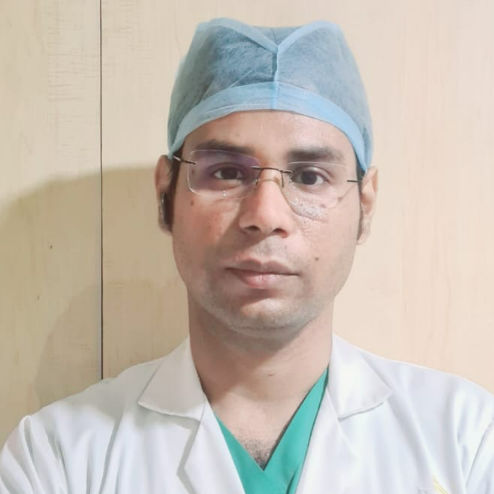Paraplegia Symptoms, Causes and Treatment Options
Learn about paraplegia, its symptoms, causes, diagnosis, and treatment options, including rehabilitation and lifestyle tips for better mobility and quality of life.


Living with or caring for someone with paraplegia can be challenging, but with the right knowledge and support, it’s possible to lead a fulfilling life. In this article, we’ll break down what paraplegia is, its symptoms, causes, and treatment options in simple terms.
What is Paraplegia?
Paraplegia is a type of paralysis that affects the lower half of the body, including the legs and sometimes parts of the trunk. It occurs due to damage to the spinal cord, usually in the thoracic (chest-level), lumbar (lower back), or sacral (pelvic) regions. Unlike quadriplegia (which affects all four limbs), paraplegia primarily impacts mobility in the legs.
Common Symptoms of Paraplegia
The symptoms depend on the severity and location of the spinal cord injury, but they often include:
- Loss of movement in the legs.
- Loss of sensation (unable to feel touch, heat, or cold below the injury).
- Difficulty controlling bladder and bowel movements (incontinence or retention).
- Muscle stiffness or spasms (spasticity).
- Chronic pain in the back, hips, or legs.
- Sexual dysfunction in some cases.
- Pressure sores due to prolonged sitting.
If you or a loved one experiences sudden weakness or paralysis in the legs, seek emergency medical help immediately.
What Causes Paraplegia?
Paraplegia is usually caused by damage to the spinal cord. Common causes include:
1. Traumatic Injuries – Car accidents, falls, sports injuries, or violence can fracture or compress the spine.
2. Spinal Cord Diseases – Conditions like spinal tumors, infections (e.g., polio), or multiple sclerosis can damage nerves.
3. Stroke or Brain Injury – Rarely, brain damage can affect signals to the lower body.
4. Congenital Conditions – Spina bifida (a birth defect where the spine doesn’t form properly) can lead to paralysis.
5. Medical Complications – Severe untreated infections, blood clots, or surgeries near the spine may cause nerve damage.
How is Paraplegia Diagnosed?
Doctors use several tests to confirm paraplegia and determine its cause:
- MRI or CT scans – To check for spinal cord injuries or tumors.
- X-rays – To detect fractures or misalignments in the spine.
- Neurological exams – Testing reflexes, muscle strength, and sensation.
- Blood tests – To rule out infections or autoimmune disorders.
Early diagnosis helps in planning the best treatment approach.
Get Your Health Assessed
Treatment Options for Paraplegia
While complete recovery depends on the injury’s severity, several treatments can improve mobility and quality of life:
1. Medical Treatments
- Surgery – Needed for spinal fractures, tumors, or compressed nerves.
- Medications – Pain relievers, muscle relaxants, and steroids to reduce inflammation.
- Nerve Stimulation Therapy – Helps restore some muscle function in certain cases.
2. Rehabilitation & Physical Therapy
- Physiotherapy – Strengthens upper body muscles and prevents joint stiffness.
- Occupational Therapy – Teaches adaptive techniques for daily tasks (e.g., using a wheelchair).
- Assistive Devices – Wheelchairs, braces, and walking aids improve independence.
Consult an Neurologist for the best advice
3. Lifestyle & Home Care Tips
- Prevent Pressure Sores – Change positions frequently, use special cushions, and keep skin clean.
- Bladder & Bowel Management – Follow a scheduled routine and consult a specialist if needed.
- Exercise Regularly – Swimming, wheelchair sports, and stretching help maintain fitness.
- Healthy Diet – High-fiber foods prevent constipation; protein-rich meals support muscle health.
4. Emotional & Psychological Support
Living with paraplegia can be emotionally taxing. Counseling, support groups, and family involvement play a crucial role in mental well-being.
Can Paraplegia Be Cured?
Currently, there’s no complete cure for permanent spinal cord damage. However, ongoing research in stem cell therapy and nerve regeneration offers hope. Early rehabilitation and adaptive technologies help many individuals regain independence.
When to See a Doctor?
If you notice sudden leg weakness, loss of sensation, or difficulty moving, consult a neurologist or spine specialist immediately. Early intervention can prevent complications.
Need Expert Advice?
If you or someone you know is dealing with paraplegia, Apollo 24|7 offers expert consultations and rehabilitation support. You can book an appointment online for personalized care.
Final Thoughts
Paraplegia is a life-changing condition, but with the right medical care, therapy, and support, many people lead active and meaningful lives. If you have concerns, don’t hesitate to reach out to a healthcare professional for guidance.
Would you like help finding a specialist near you? Visit Apollo24|7 today for expert care and support.
Consult an Neurologist for the best advice
Consult an Neurologist for the best advice

Dr. Uddalak Chakraborty
Neurologist
8 Years • MBBS, MD(GENL.MED.),DM(NEUROLOGY)
Kolkata
MCR SUPER SPECIALITY POLY CLINIC & PATHOLOGY, Kolkata

Dr. Aditendraditya Singh Bhati
Neurosurgeon
21 Years • MBBS(2004), DNB Neurosurgery(2014); MNAMS; Fellow Skull Base Endoscopy (Italy), Fellow Extended Skull Base ( Weill Cornell, USA), Fellow ZAP-X Radiosurgery. Member of American Association of Neurological Surgeons
Delhi
Apollo Hospitals Indraprastha, Delhi
(125+ Patients)

Dr. Ganeshgouda Majigoudra
Neurologist
10 Years • MBBS, MD ( GENERAL MEDICINE) DM (NEUROLOGY)
Bengaluru
Apollo Clinic, JP nagar, Bengaluru

Dr. E Prabhakar Sastry
General Physician/ Internal Medicine Specialist
40 Years • MD(Internal Medicine)
Manikonda Jagir
Apollo Clinic, Manikonda, Manikonda Jagir
(175+ Patients)

Dr Debnath Dwaipayan
Neurosurgeon
9 Years • MBBS, MS(Gen. Surgery), DrNB (Neurosurgery)
Delhi
Apollo Hospitals Indraprastha, Delhi
Consult an Neurologist for the best advice

Dr. Uddalak Chakraborty
Neurologist
8 Years • MBBS, MD(GENL.MED.),DM(NEUROLOGY)
Kolkata
MCR SUPER SPECIALITY POLY CLINIC & PATHOLOGY, Kolkata

Dr. Aditendraditya Singh Bhati
Neurosurgeon
21 Years • MBBS(2004), DNB Neurosurgery(2014); MNAMS; Fellow Skull Base Endoscopy (Italy), Fellow Extended Skull Base ( Weill Cornell, USA), Fellow ZAP-X Radiosurgery. Member of American Association of Neurological Surgeons
Delhi
Apollo Hospitals Indraprastha, Delhi
(125+ Patients)

Dr. Ganeshgouda Majigoudra
Neurologist
10 Years • MBBS, MD ( GENERAL MEDICINE) DM (NEUROLOGY)
Bengaluru
Apollo Clinic, JP nagar, Bengaluru

Dr. E Prabhakar Sastry
General Physician/ Internal Medicine Specialist
40 Years • MD(Internal Medicine)
Manikonda Jagir
Apollo Clinic, Manikonda, Manikonda Jagir
(175+ Patients)

Dr Debnath Dwaipayan
Neurosurgeon
9 Years • MBBS, MS(Gen. Surgery), DrNB (Neurosurgery)
Delhi
Apollo Hospitals Indraprastha, Delhi





 Ayurvedic Benefits, Uses, and Side Effects.webp)